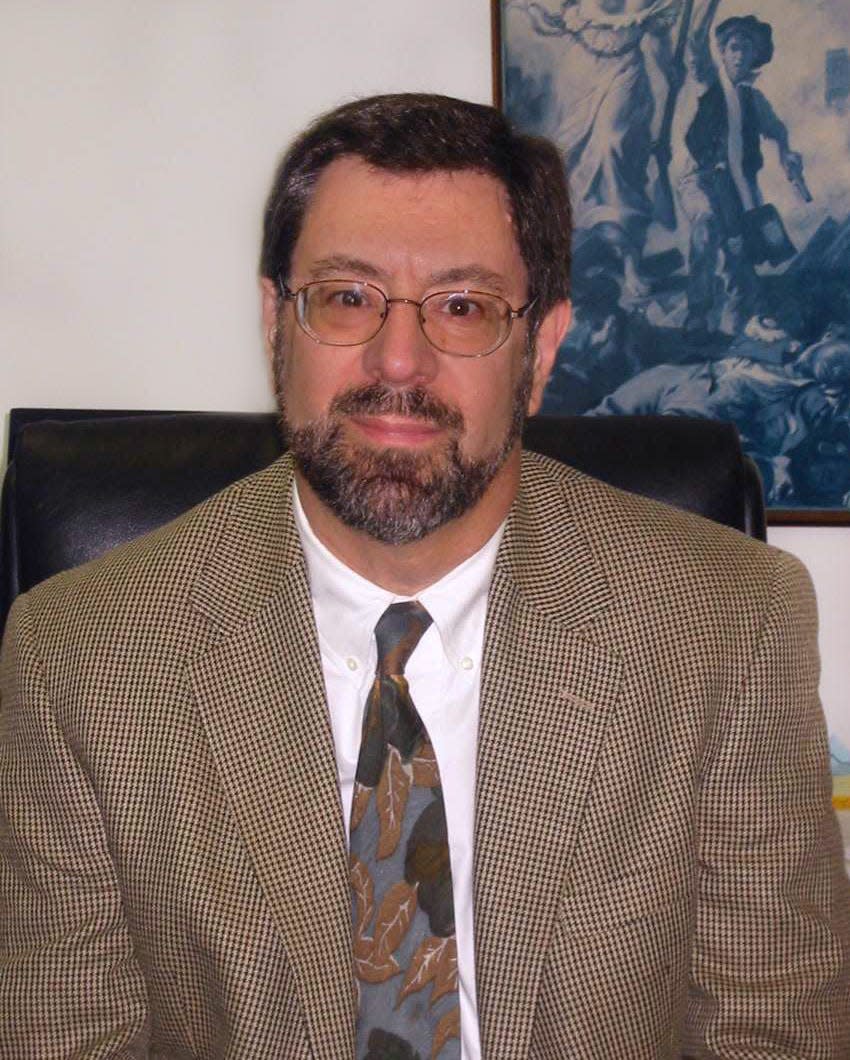This Passover will be a jarring contrast

- Oops!Something went wrong.Please try again later.
Jews around the world along with friends and neighbors will soon celebrate Passover, commemorating the liberation of the Hebrew tribes from slavery under the pharoah in Egypt.
The ceremony is governed by the Haggadah, which explains the order of the ritual meal (the Seder) and includes a moving rededication to the personal responsibilities of Jewish people to the struggle for human rights now and into the future stemming from our deliverance from slavery.
The essence of the ceremony is contained in this exchange between the reader and those assembled:
In every generation, each Jew must look upon themself as though they, personally, were among those who went forth from Egypt.
The struggle for freedom is a continuous struggle, for humanity never reaches total liberty and opportunity.
In every age, some new freedom is won and established, adding to the advancement of human happiness and security.
Each age uncovers a formerly unrecognized servitude, requiring new liberation to set the soul free.
In every age, the concept of freedom grows broader, widening the horizons for finer and nobler living.
Each generation is duty bound to contribute to this growth, else mankind’s ideals become stagnant and stationary.
The events in Egypt were but the beginning of a force in history which will forever continue.
In this spirit, we see ourselves as participants in the Exodus, dedicating our energies to the cause there begun.
I still get chills contemplating the phrase “each age uncovers a formerly unrecognized servitude,” thinking about how this has played out – those whose “unrecognized servitude” was accepted, and how the bloody struggle for racial equality contributed to freedom and equality for other groups, including women, those with disabilities, lesbians and gay men, and now transgender youth.
But this year, especially in Florida, Passover’s solemn recommitment coincides with the most dramatic assault on human rights – and the freedom to think and speak – in generations.
Women have been relegated to second-class status, having lost control over their reproductive health care
Librarians are accused of “sexualizing” children to “rob them of their innocence” because of books available in our libraries
Lesbians and gay men are vilified as “groomers” of innocent young children
Schoolteachers and college professors are accused of teaching about the role of race in our history, and its continuing impact on our institutions, in order to make white children feel uncomfortable and guilty about their ancestry
Migrants seeking refuge and asylum, as they have from before we were a nation, are demonized.
These “anti-woke” policies are being inflicted on our state by a politically ambitious governor and a compliant Legislature. DeSantis is not the first autocrat to cynically tell us that to protect freedom it is necessary to restrict the freedom of some.
But societies slide into authoritarianism when checks on the power of the executive by an independent judiciary are eliminated.
If this hasn’t hit you yet, just wait a few months to see if the DeSantis reshaped Florida Supreme Court ignores precedent and upholds abortion bans that fly in the face of a constitutional provision requiring state government to respect individual privacy or if the court upholds the governor’s redistricting map that diminishes the voting strength of racial minorities in order to secure partisan advantage for his political party – precisely what a constitutional amendment forbids. But finding ways to make legal what is unconstitutional is why DeSantis appointed these judges.
Nevertheless, this Passover we can be inspired by those who came before us and mustered the courage to push back.
As I came to adulthood in the 1960s, I stood in awe of the courage of the Greensboro African-American college students who, in February 1960, sat down to challenge Woolworth’s segregated lunch counters, and the courage of those – mostly African-American college students – who boarded the first two buses of Freedom Riders in May 1961, and the courage of John Lewis and others who, in March 1965, crossed the Edmund Pettus Bridge in Selma to face Alabama state troopers on horseback and armed with billy clubs.
They knew that they faced brutality from those threatened by their challenge to what was presumed to be the natural order.
But these students – mostly students, but with some adults – changed America.
This Passover, as we sit at the Seder table and recite the Haggadah’s pledge to see ourselves as part of the Exodus from Egypt and recommit ourselves to the growth of freedom, we need to remember that we are not idle observers of history.
Like the college students of a few generations ago, we too can shape our history.
Howard L. Simon, Ph.D., of Sanibel is the retired executive director of the American Civil Liberties Union of Florida (1997 – 2018). He is now the president of the Clean Okeechobee Waters Foundation.
This article originally appeared on Fort Myers News-Press: This Passover will be a jarring contrast

